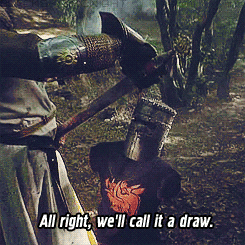How do you know? Many don't, hence why every year there are residents that end up out of programs over it. Keep in mind, the vast majority of surgical residents that don't progress do so because of either professionalism issues or inability to handle the non-operating portions of surgery. It is a very small minority to be sure that can't handle/master the technical part of surgery and the few that I have come across simply lacked the eye-hand coordination and the ability to learn by watching someone do something and with instruction, emulate. Truly, operating isn't hard physically. But, then again, neither is driving a car and yet most of us know people that simply can not drive safely. I don't me distracted drivers, I mean physically struggle to understand the basics of throttle control, despite driving every day. Personally, I wouldn't worry about it too much. Easy for me to say, obviously, but the reality is that it affects too few people.


